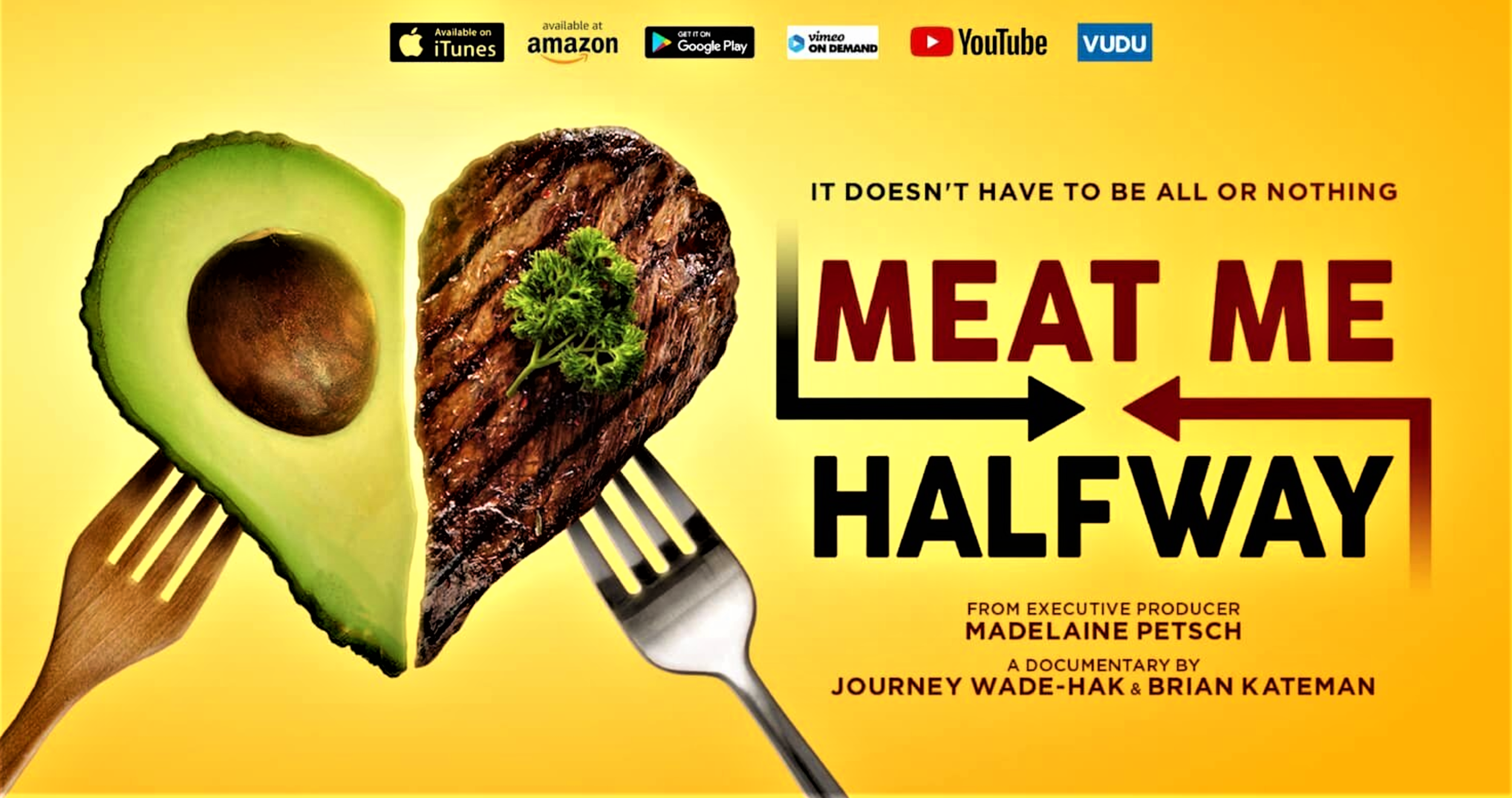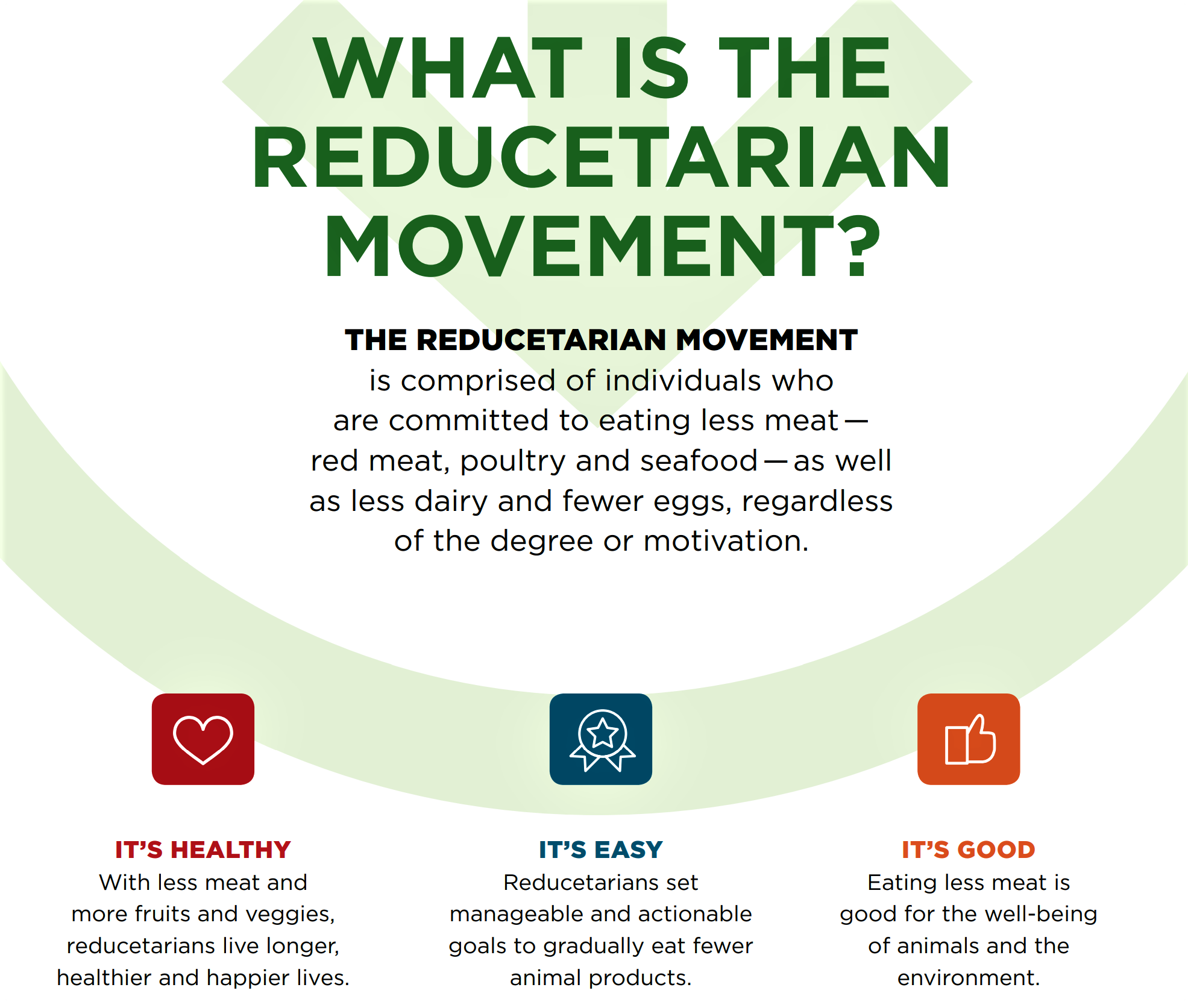By Jessica Scott-Reid
Jessica is a Canadian writer, animal advocate and plant-based food expert. Her work appears regularly in media across Canada and the US.
Editor’s Note: As part of our series on changemakers, Jessica interviewed Brian Kateman, co-founder of the Reducetarian Foundation, who coined the term “reducetarian” to describe a person who is deliberately reducing their consumption of meat. He is the author of The Reducetarian Solution, The Reducetarian Cookbook, and Meat Me Halfway, and producer of the film version of Meat Me Halfway. Brian is a regular contributor to Fast Company, Entrepreneur, and Forbes, and his writings have appeared in The Atlantic, The Los Angeles Times and The Washington Post. He is an adjunct professor of environmental science and sustainability at Kean University and teaches environmental communications at Fordham University in New York.
When he was younger, Brian Kateman considered himself an environmentalist. He cared about nature and animals, he promoted recycling and composting. But, like many young people, he was also used to eating at McDonald’s and enjoying a burger without much consideration. “I had not thought about our food," he says. "I didn’t know about its connection to the planet, to animal welfare or human health." That changed, he explains, in an ironic moment whilst eating a burger on an airplane and reading a book, “The Ethics of What We Eat”, by Peter Singer and Jim Mason.
Kateman says the book blew his mind and from that moment on he decided to be vegetarian – to no longer eat meat. That, however, is not where Kateman’s dietary and philosophical journey ended. In fact, it is where it – the reducetarian story — began.
At first Kateman says he noticed benefits from becoming vegetarian, such as feeling good about aligning his actions with his values, and seeing his acne clear up. But, he adds, it wasn’t a perfect path. “I fell off the tofu train from time to time,” he says of occasionally eating meat at a family dinner or in other social situations. “So, I realized that this label for me – vegan or vegetarian — didn’t fit. It didn’t fit because I wasn’t 100 percent, and the labels kind of made me feel like crap.”
The campaign is to try “to get people to eat less meat without it being all or nothing”
— Brian Kateman
It was in this moment that Kateman began considering the idea of a middle ground — both for himself and the friends and family around him — who he thought would never consider going vegan, or even becoming flexitarian (someone who eats a primarily vegetarian diet but who occasionally eats meat or fish). So, along with a friend, Kateman set out in 2014 to create a campaign to "try to get people to eat less meat without it being all or nothing,” he recalls, “and we came up with the word ‘reducetarian’”.
The concept, says Kateman, “is really hard to argue with. We grow up with doctors telling us to eat an apple a day. It’s not controversial, this idea that people should cut back on animal products and eat more fruits and vegetables.” He admits though, that while most may agree with the idea, getting them to do it is often more difficult. However, he adds, motivating people to reduce the amount of animal products they consume is much easier.
That said, what has now come to be known as the reducetarian movement has received some criticism, from both the proponents of meat-eating and some abolitionist vegans who say no animals should be consumed. There is also some skepticism around the concept of reducing meat consumption, as surveys have shown that as the number of people who claim to be reducing meat is going up, the overall consumption of meat is also rising. As always, the picture is more nuanced as the data shows that meat consumption is declining in many richer nations but rising globally as developing nations become more affluent.
But for Kateman, the reducetarian strategy is based in realism, in meeting people where they are right now rather than telling them where to go. “Telling anyone to do anything is on its own not usually an effective strategy,” he explains. “My goal is to get people to care about the food system, to care about animals, to understand that their food choices matter.”
Since its early days, the Reducetarian Foundation has grown, evolved and changed. It now actively advocates against factory farming, as well as promoting the development and broader accessibility of alternative products, such as plant and cell-based meats.
In addition to being the author of three books and the producer of a well-received documentary, Kateman’s Ted Talk on Reducetarianism has been viewed over 750,000 times and the Reducetarian Summit, which recently wrapped up its 4th annual meeting, has seen attendance grow nearly every year.
The Reducetarian Foundation has two primary goals, says Kateman: “It’s to get every person on the planet in a high-income country, and eating way too much meat, to learn about this idea that meat consumption isn’t all-or-nothing, and they should consider cutting back on animal products. And two, to try to build capacity in the movement”— getting more people on board.
Today Kateman says that while he still doesn’t identify as vegan, he is “more vegan than I ever imagined that I would be.” When recently asked on Twitter for his best tip for going vegan, he says he replied: “Strive to be 99 percent vegan, not 100 percent, because the difference between those two is so negligible.”



